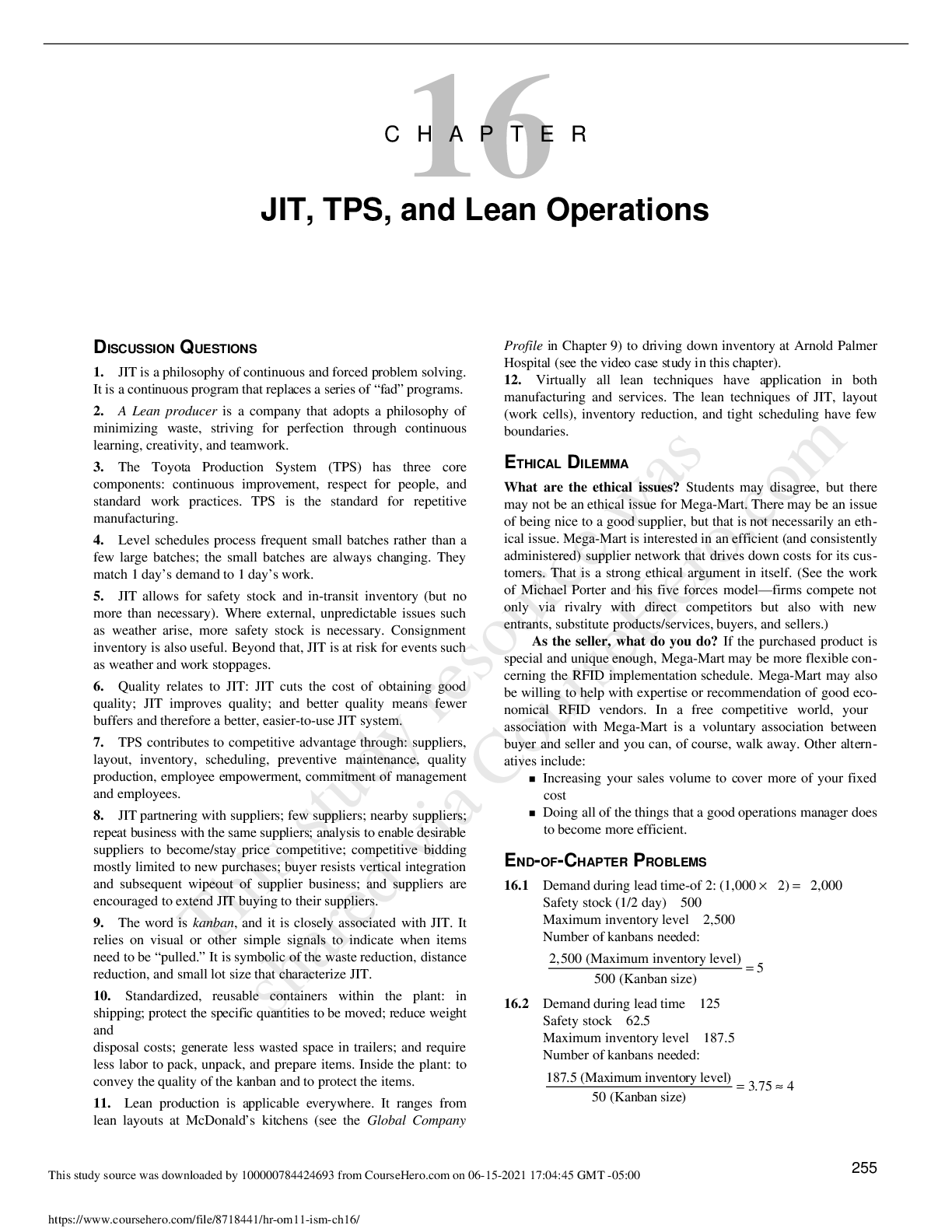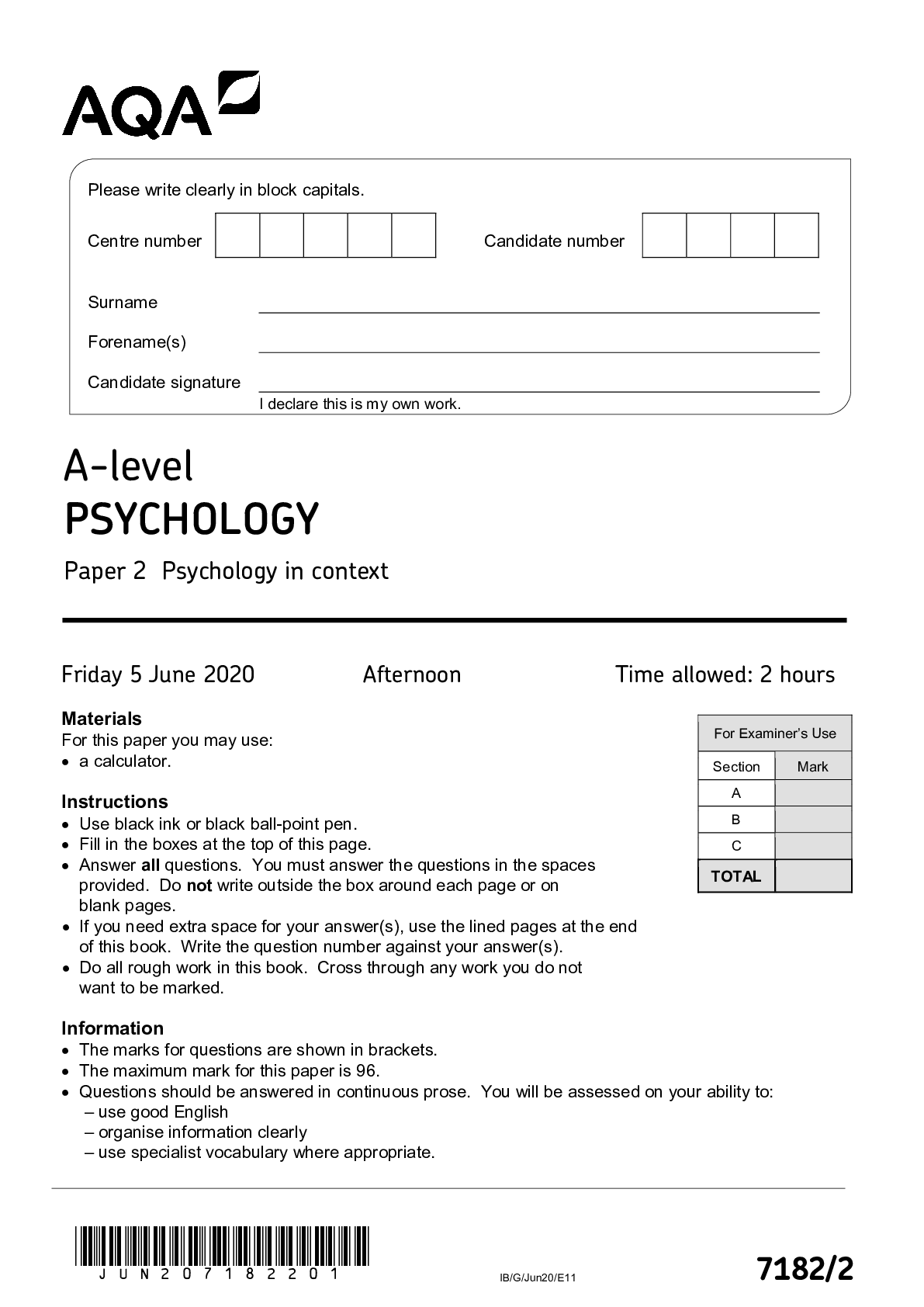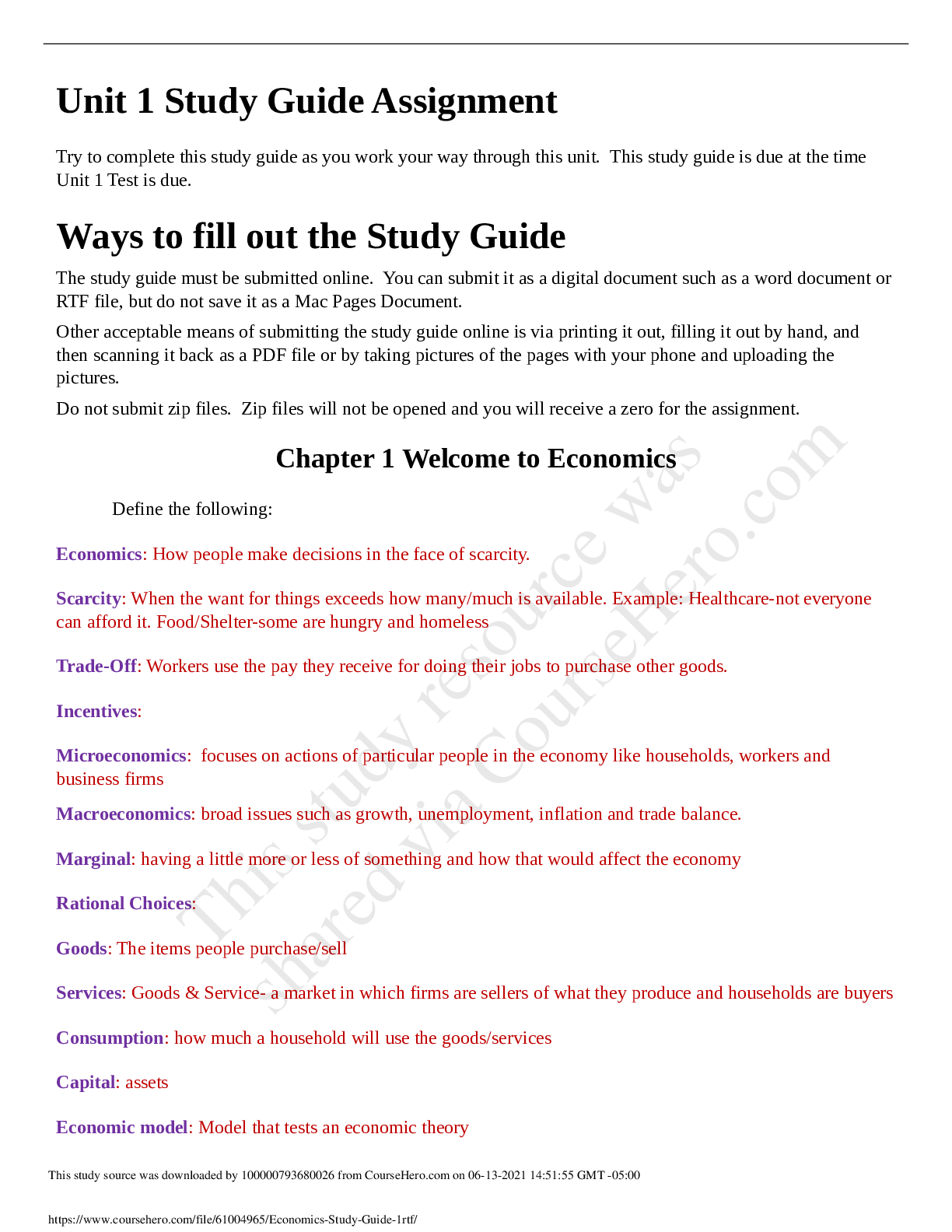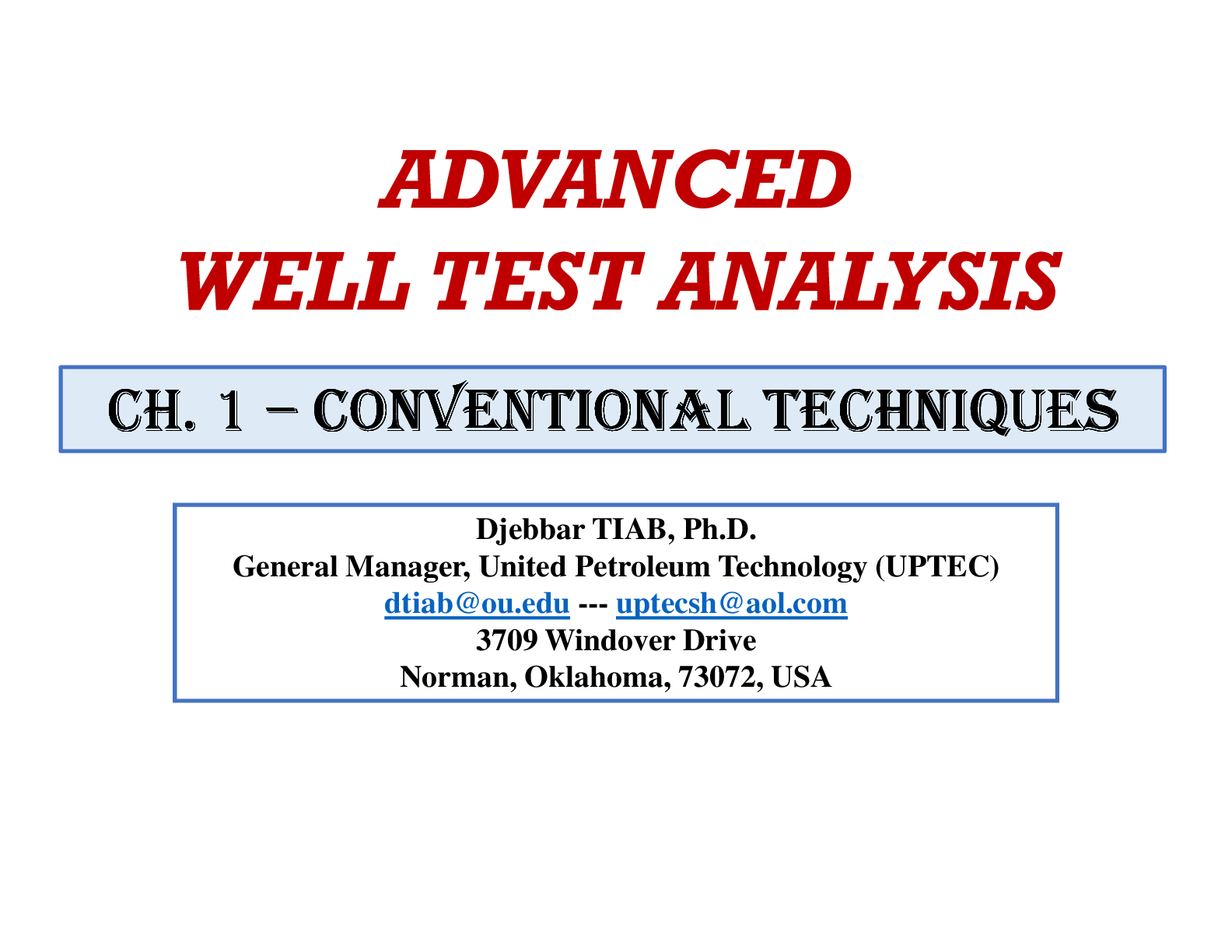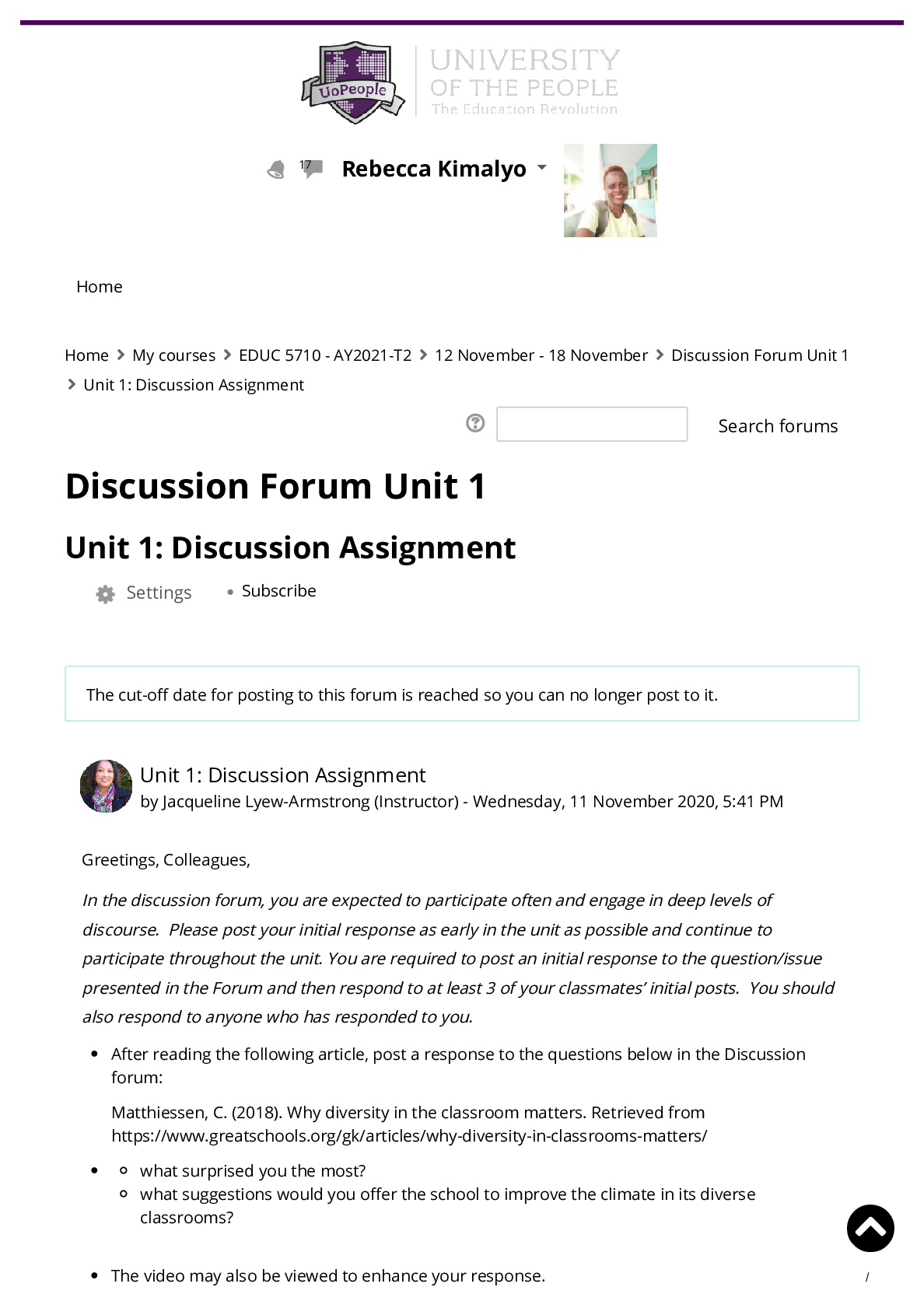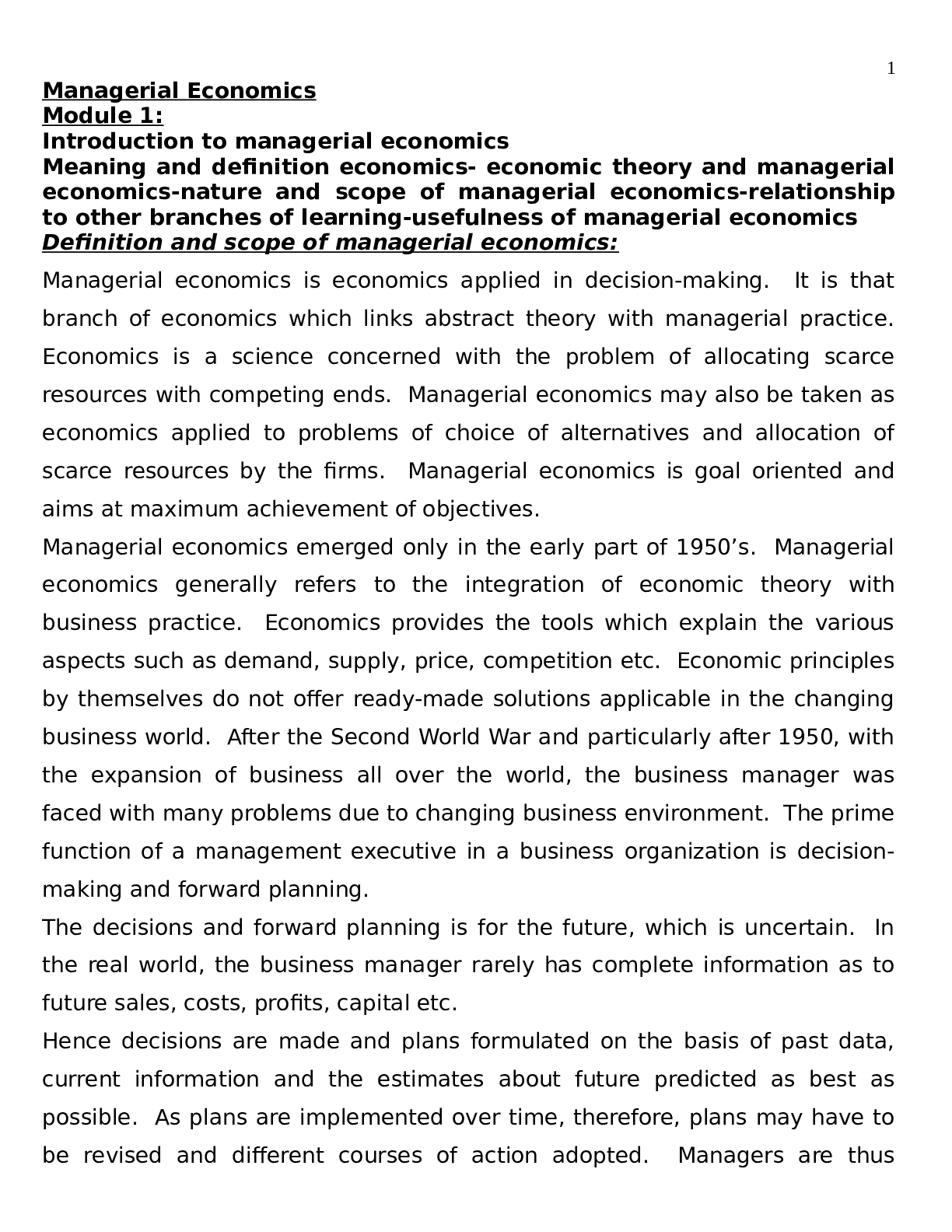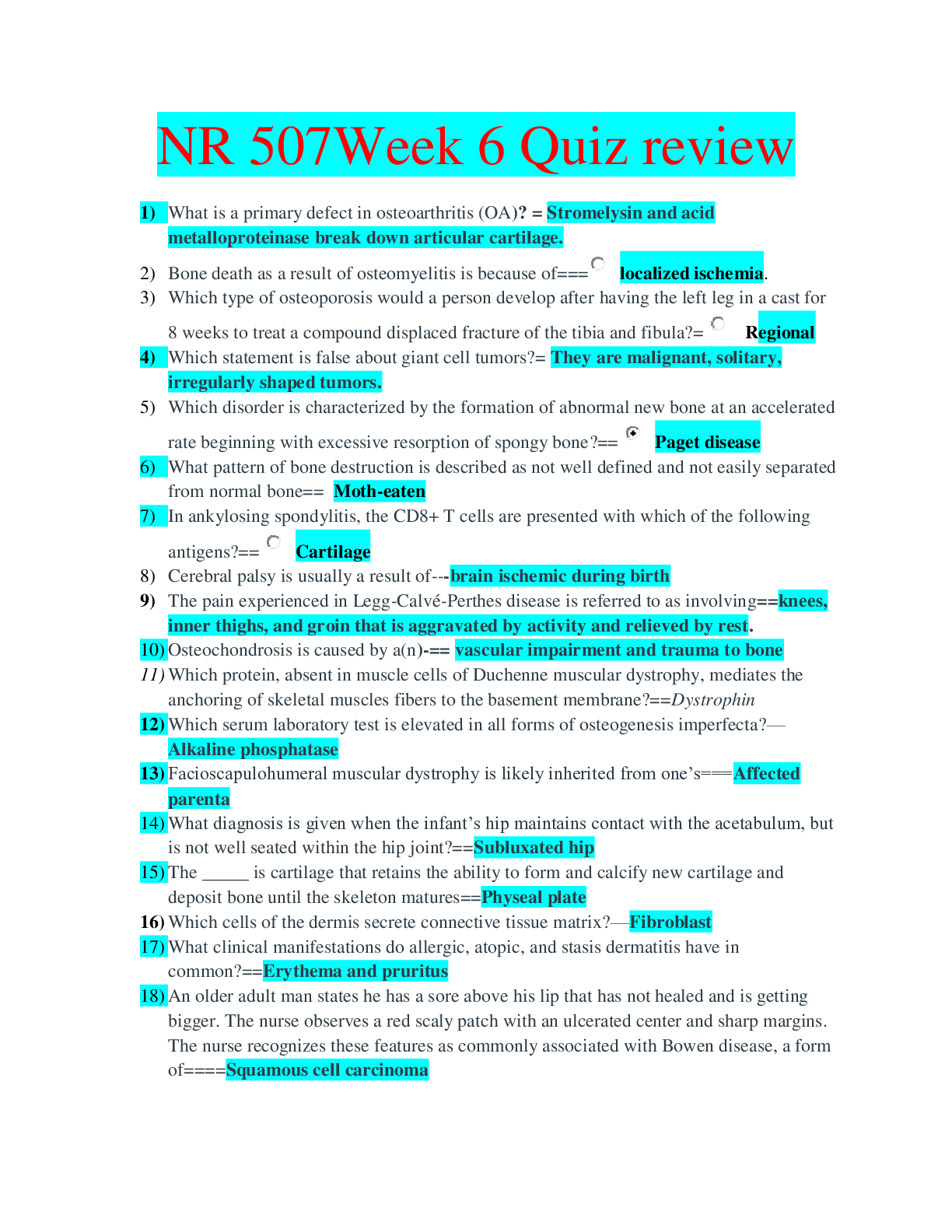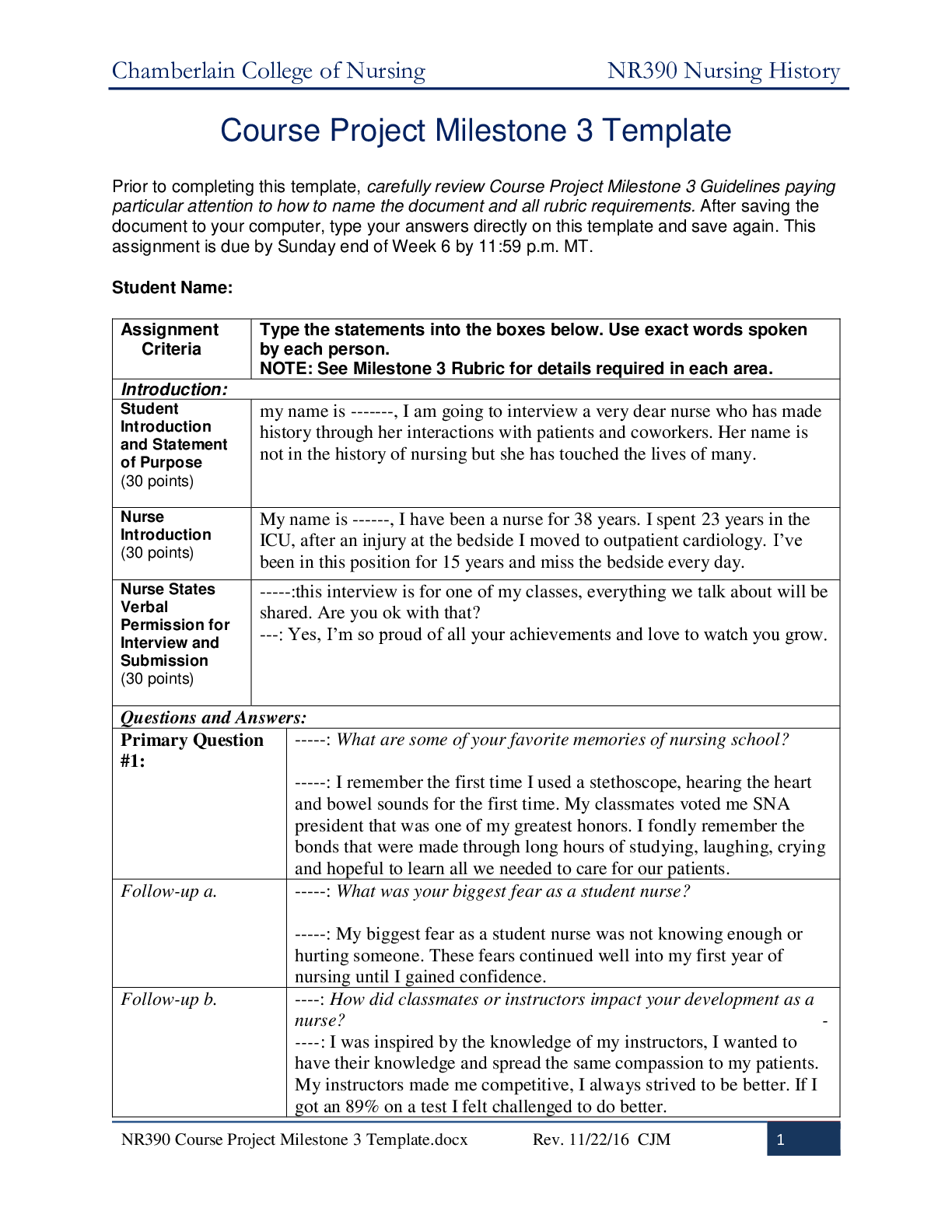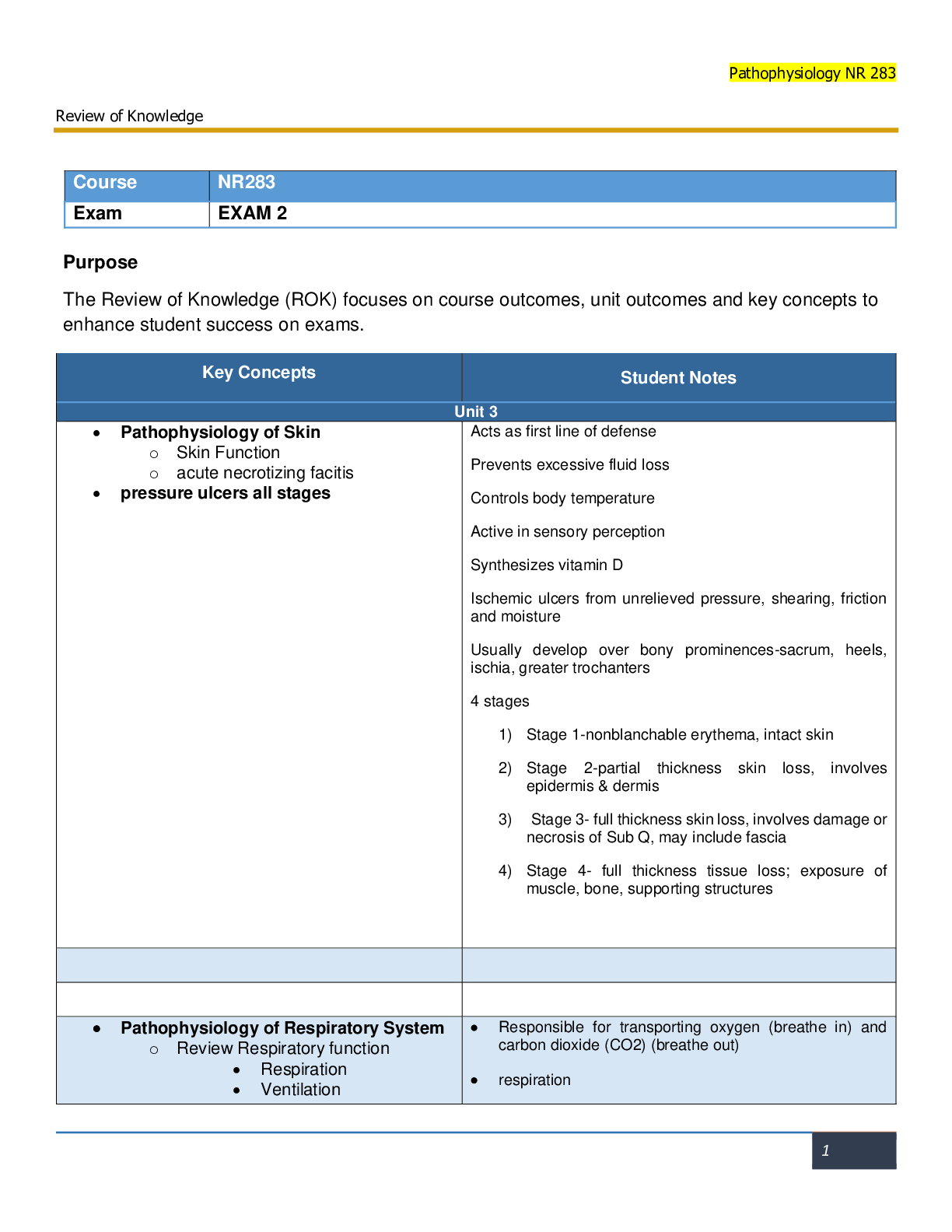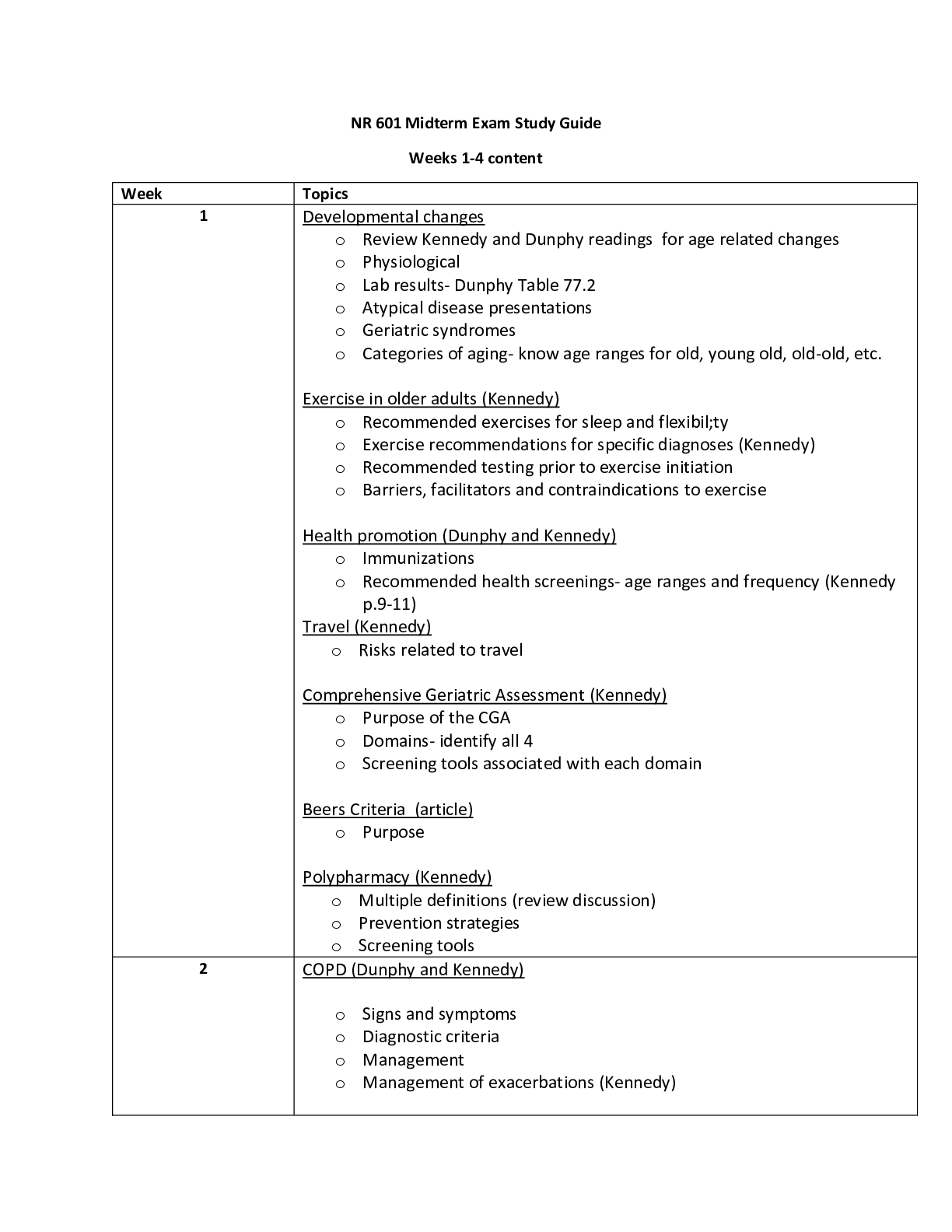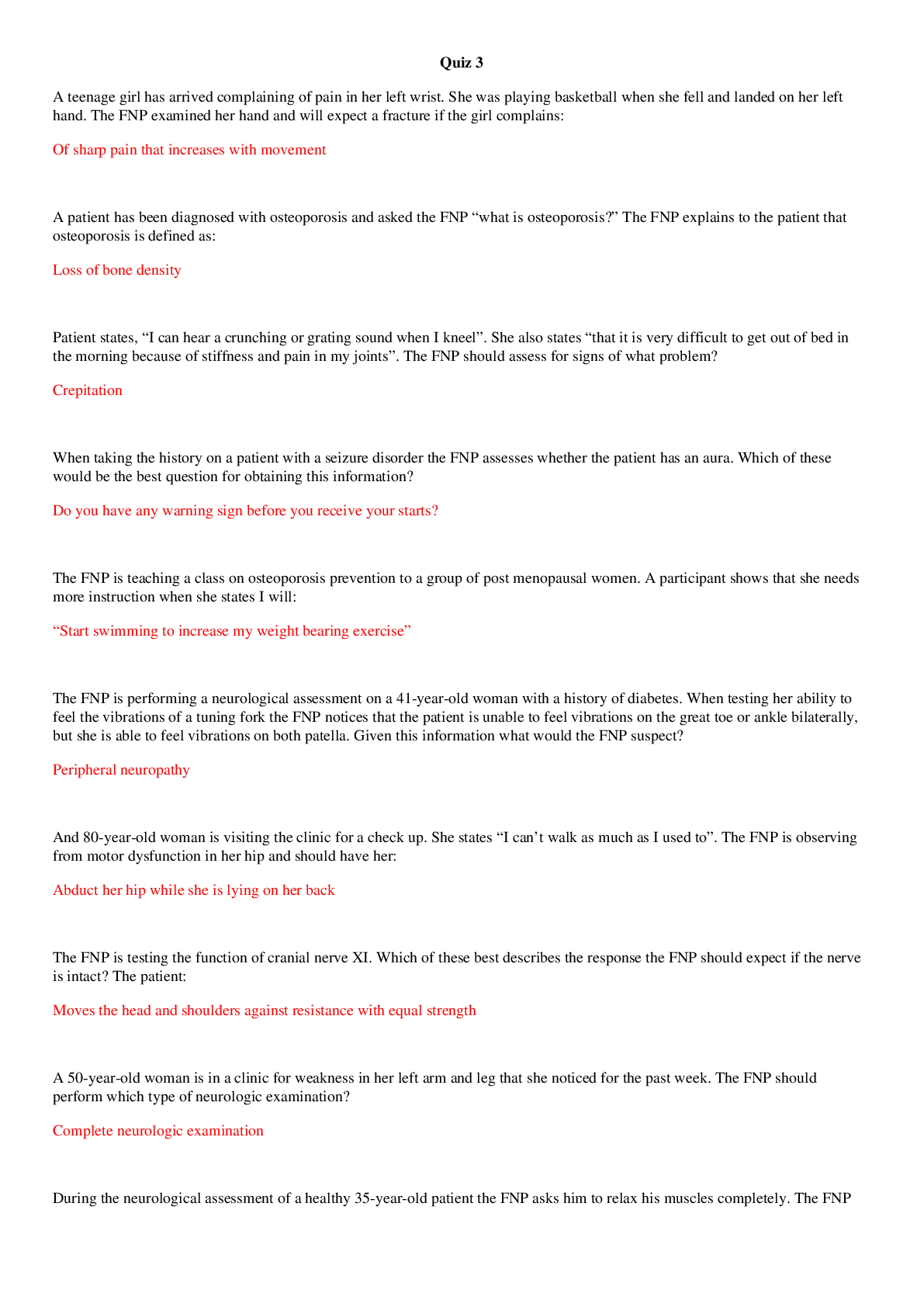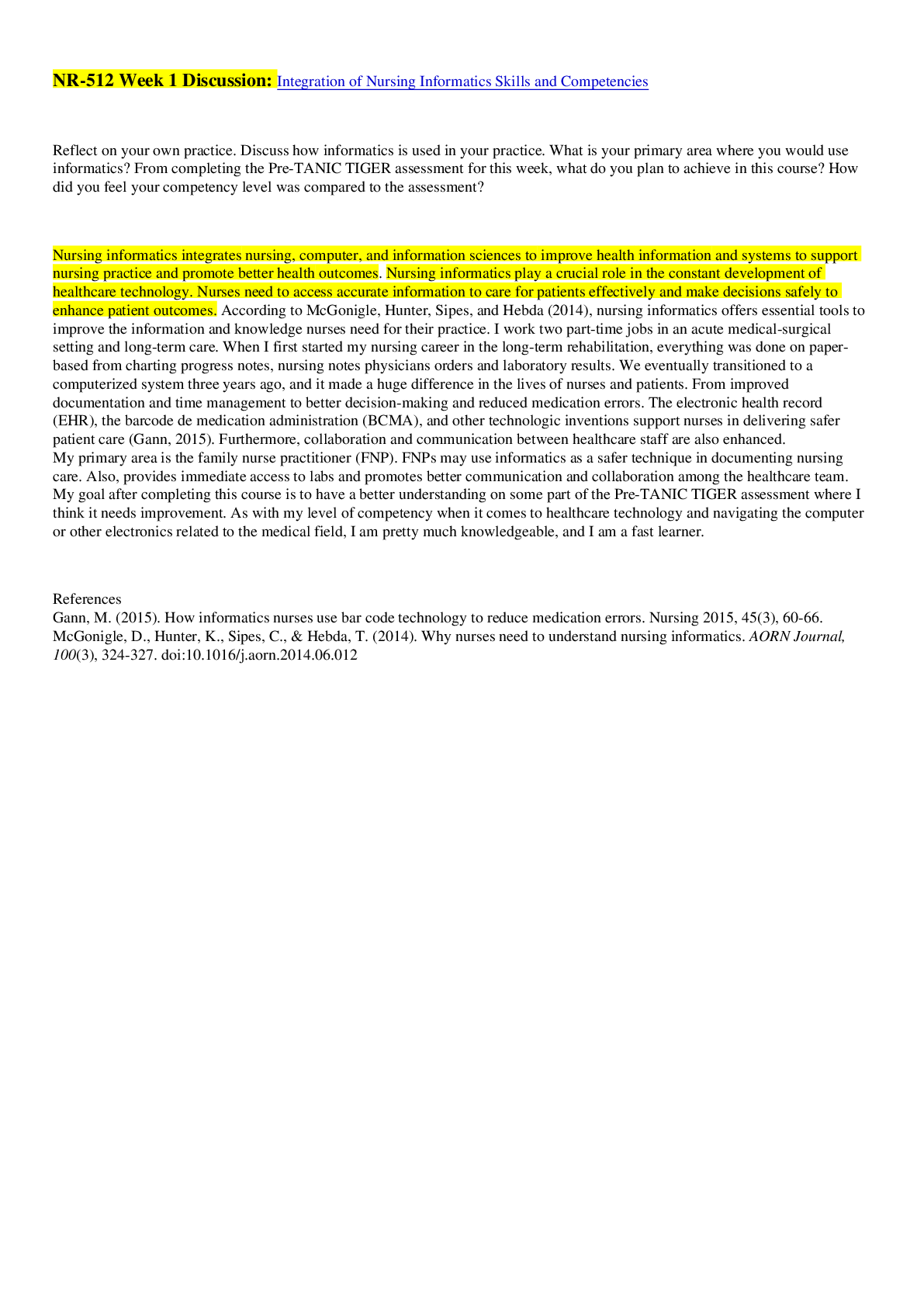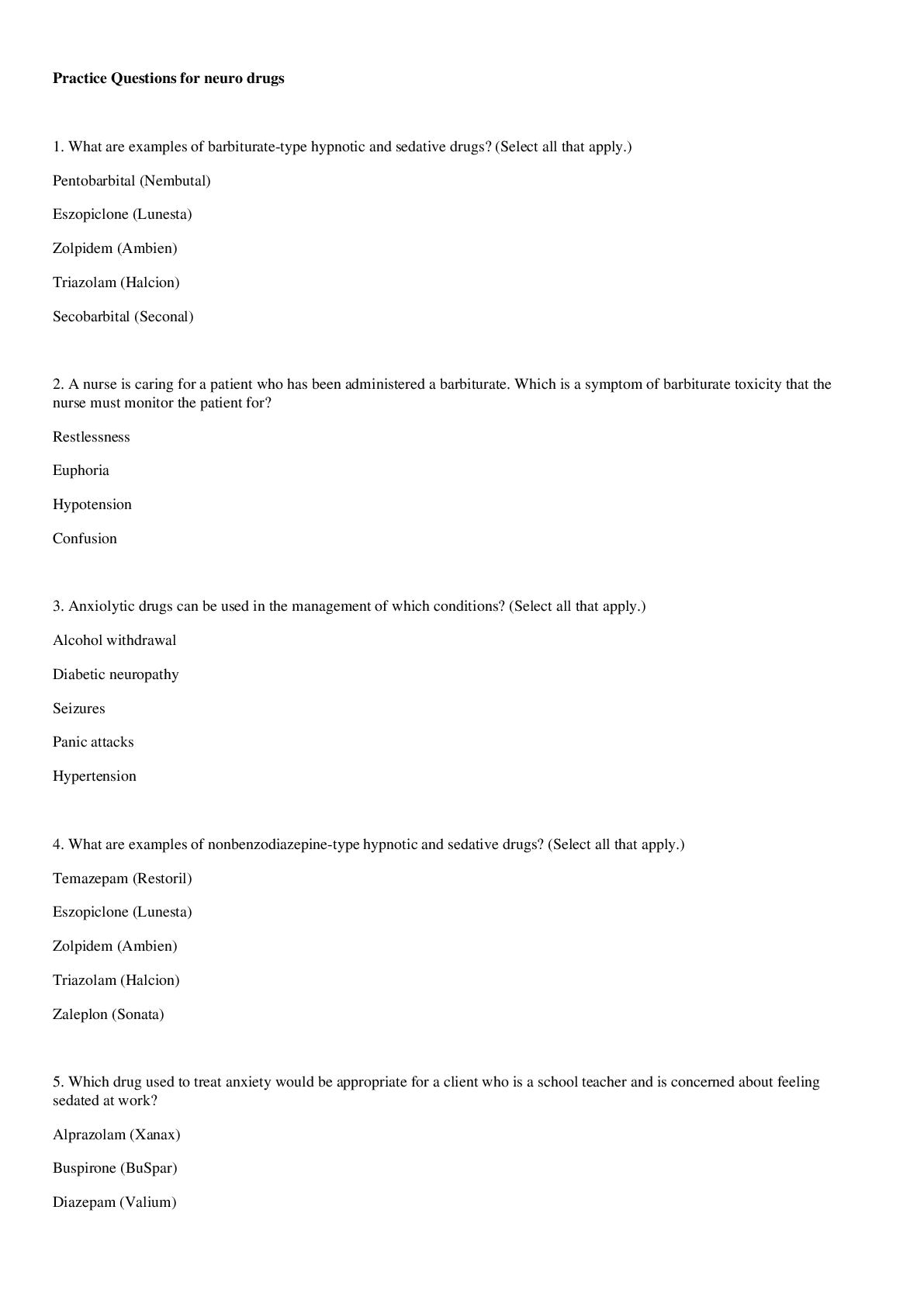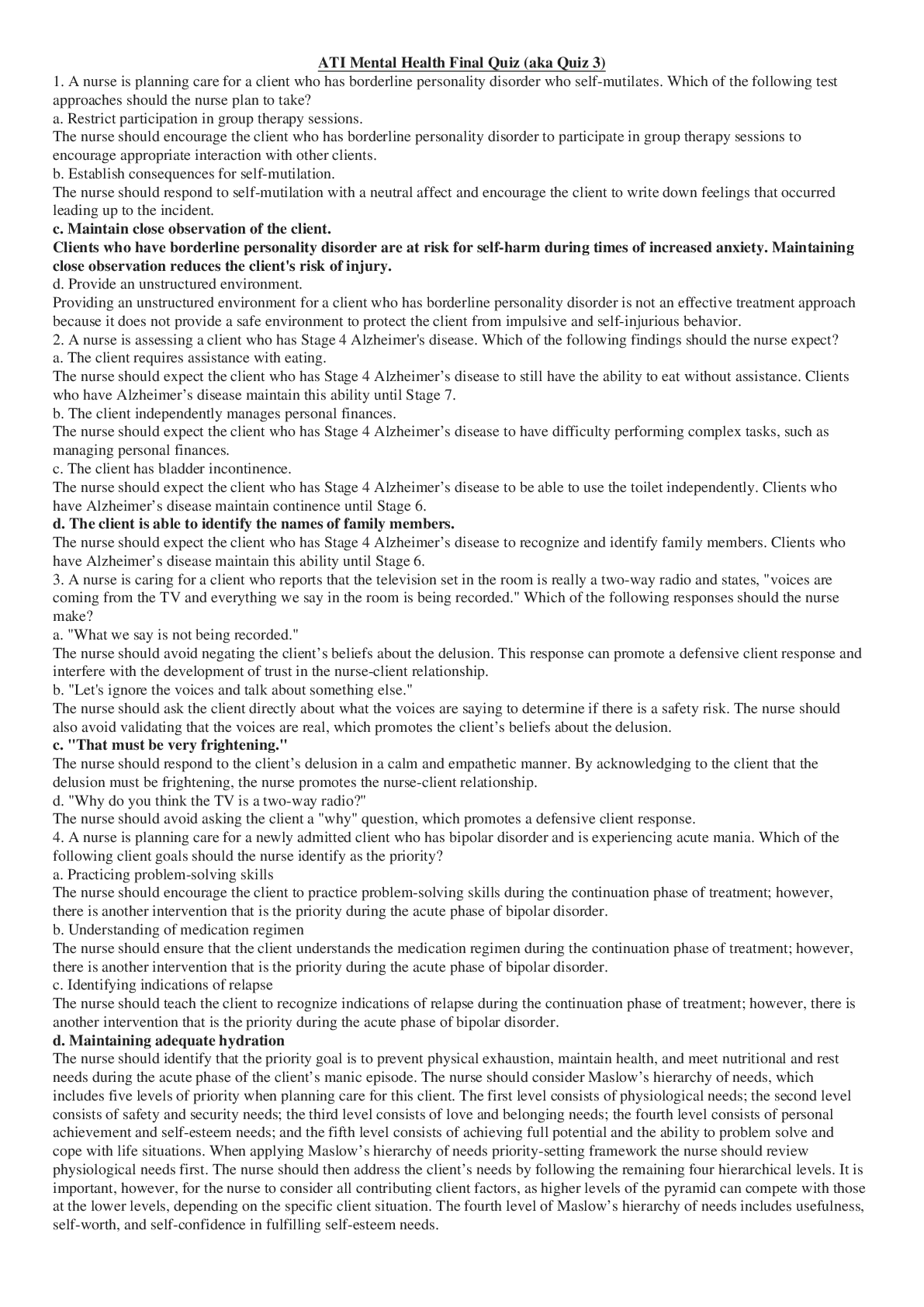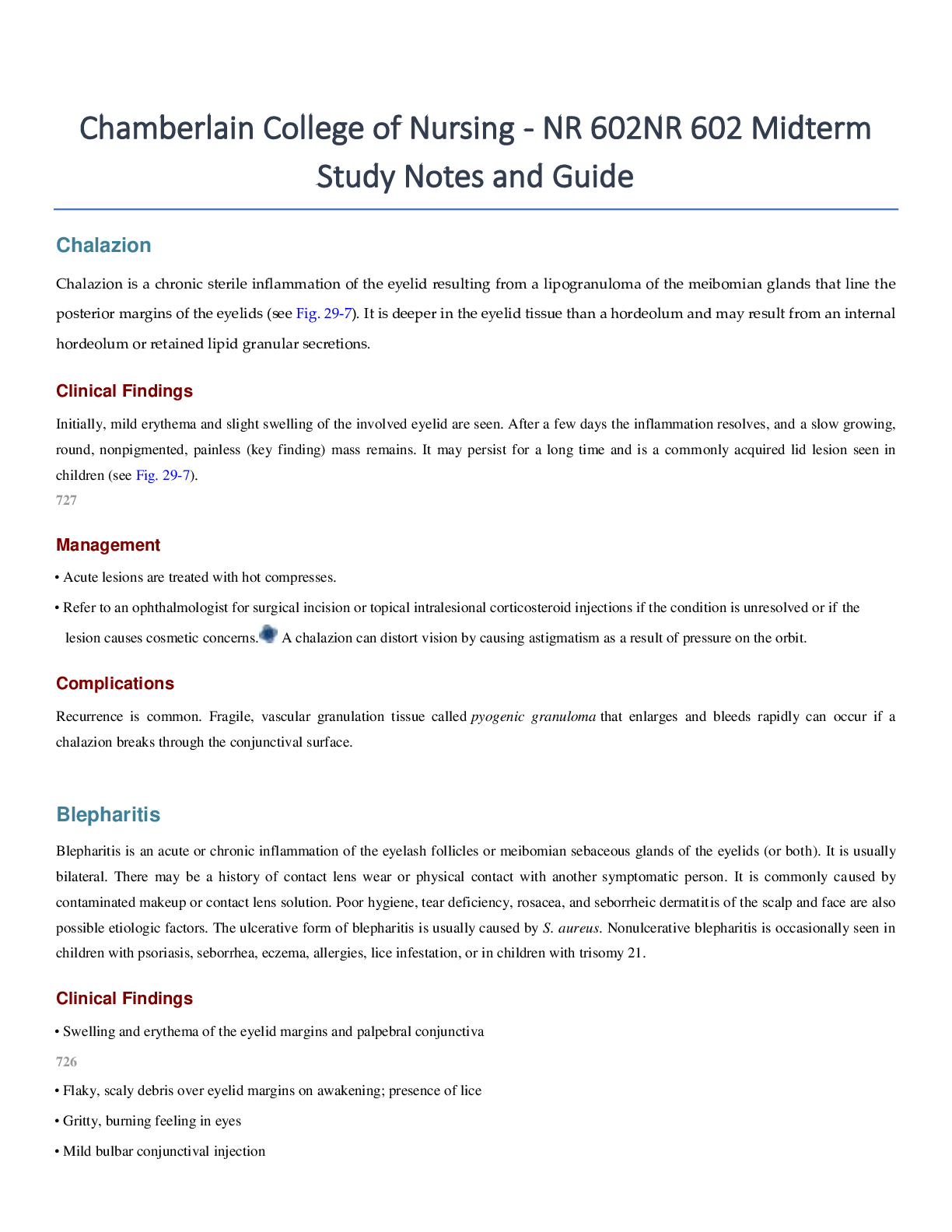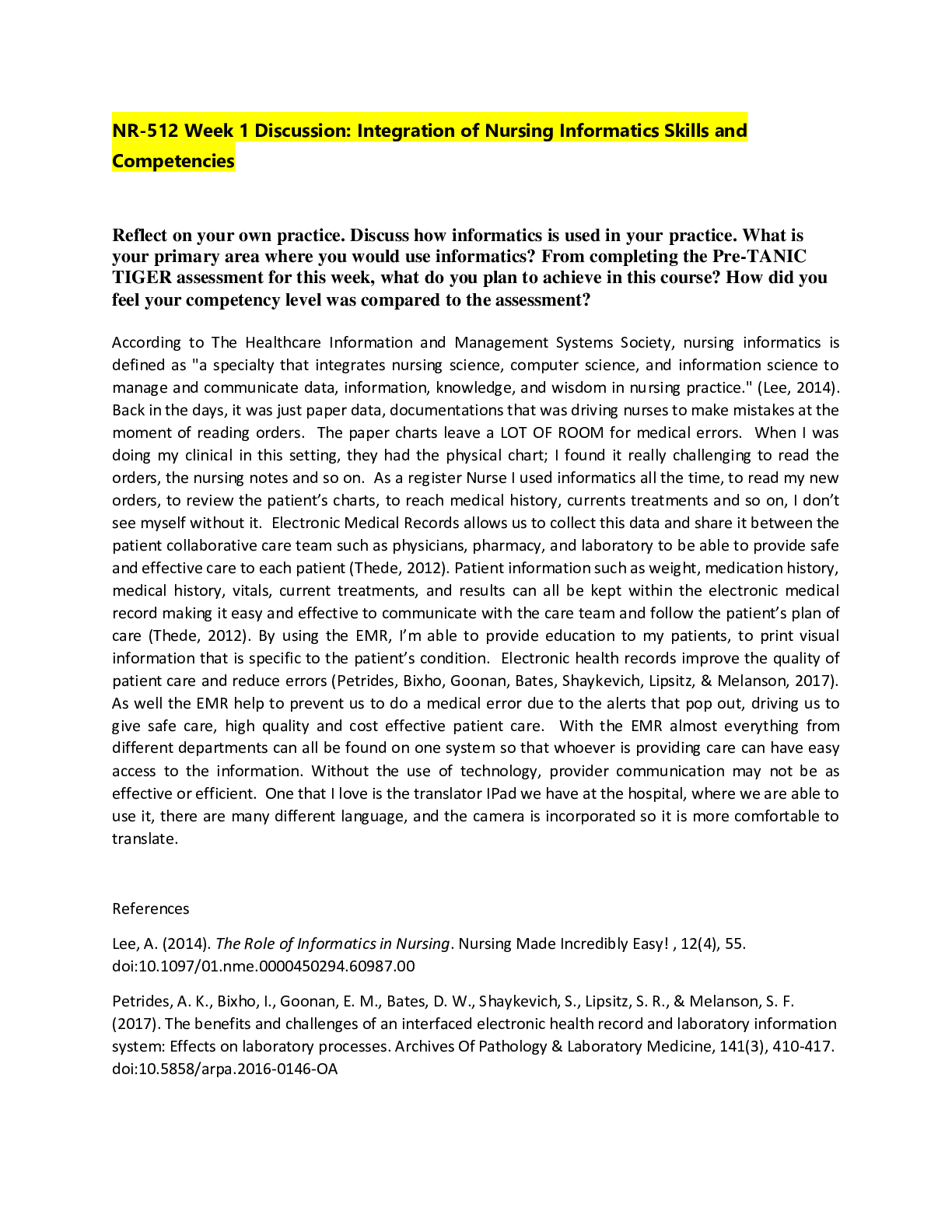*NURSING > STUDY GUIDE > Chamberlain College of Nursing - NR 599-10645Week 4 study guide>General principles of Nursing Inform (All)
Chamberlain College of Nursing - NR 599-10645Week 4 study guide>General principles of Nursing Informatics
Document Content and Description Below
General principles of Nursing Informatics Knowledge-The awareness and understanding of a set of information and ways that information can be made useful to support a specific task or arrive ... at a decision; abounds with others’ thoughts and information. Information that is synthesized so that relationships are identified and formalized. Understanding that comes through a process of interaction or experience with the world around us. Information that has judgment applied to it or meaning extracted from it. Processed information that helps to clarify or explain some portion of our environment or world that we can use as a basis for action or upon which we can act. Internal process of thinking or cognition. External process of testing, senses, observation, and interacting. Knowledge: Information that has been synthesized so that relations and interactions are defined and formalized; it is a build of meaningful information constructed of discrete data points (Matney et al., 2011). Knowledge is often affected by assumptions and central theories of a scientific discipline and is derived by discovering patterns of relationships between different clusters of information. Knowledge answers questions of “why” or “how.” For healthcare professionals, the combination of different information clusters, such as the ICD-9 diagnosis #428.0 “Congestive heart failure, unspecified” + living status “living alone” with an additional information that an older man (78 years old) was just discharged from hospital to home with a complicated new medication regimen (e.g., blood thinners) might indicate that this person is at a high risk for drug-related adverse effects (e.g., bleeding). Wisdom-Knowledge applied in a practical way or translated into actions; the use of knowledge and experience to heighten common sense and insight so as to exercise sound judgment in practical matters. Sometimes thought of as the highest form of common sense, resulting from accumulated knowledge or erudition (deep, thorough learning) or enlightenment (education that results in understanding and the dissemination of knowledge). Wisdom is the ability to apply valuable and viable knowledge, experience, understanding, and insight while being prudent and sensible. It is focused on our own minds; it is the synthesis of our experience, insight, understanding, and knowledge. Wisdom is the appropriate use of knowledge to solve human problems. It is knowing when and how to apply knowledge. Wisdom: An appropriate use of knowledge to manage and solve human problems (ANA, 2008; Matney et al., 2011). Wisdom implies a form of ethics, or knowing why certain things or procedures should or should not be implemented in healthcare practice. In nursing, wisdom guides the nurse in recognizing the situation at hand based on patients’ values, nurse’s experience, and healthcare knowledge. Combining all these components, the nurse decides on a nursing intervention or action. Benner (2000) presents wisdom as a clinical judgment integrating intuition, emotions, and the senses; using the previous examples, wisdom will be displayed when the homecare nurse will consider prioritizing the elderly heart failure patient using blood thinners for an immediate intervention, such as a first nursing visit within the first hours of discharge from hospital to assure appropriate use of medications (para. 2). Scientific Underpinning-The conceptual framework underpinning the science and practice of NI centers on the core concepts of data, information, knowledge, and wisdom, also known as the DIKW paradigm. As an aside, it is important to note that this paradigm is not exclusive to nursing, and is in fact used by others who work with data and information. When we assess a patient to determine his or her nursing needs, we gather and then analyze and interpret data to form a conclusion. This is the essence of nursing science. Information is composed of data that were processed using knowledge. Knowledge is the awareness and understanding of a set of information and ways that information can be made useful to support a specific task or arrive at a decision. When we apply previous knowledge to data, we convert those data into information, and information into new knowledge—that is, an understanding of [Show More]
Last updated: 1 year ago
Preview 1 out of 7 pages
Instant download
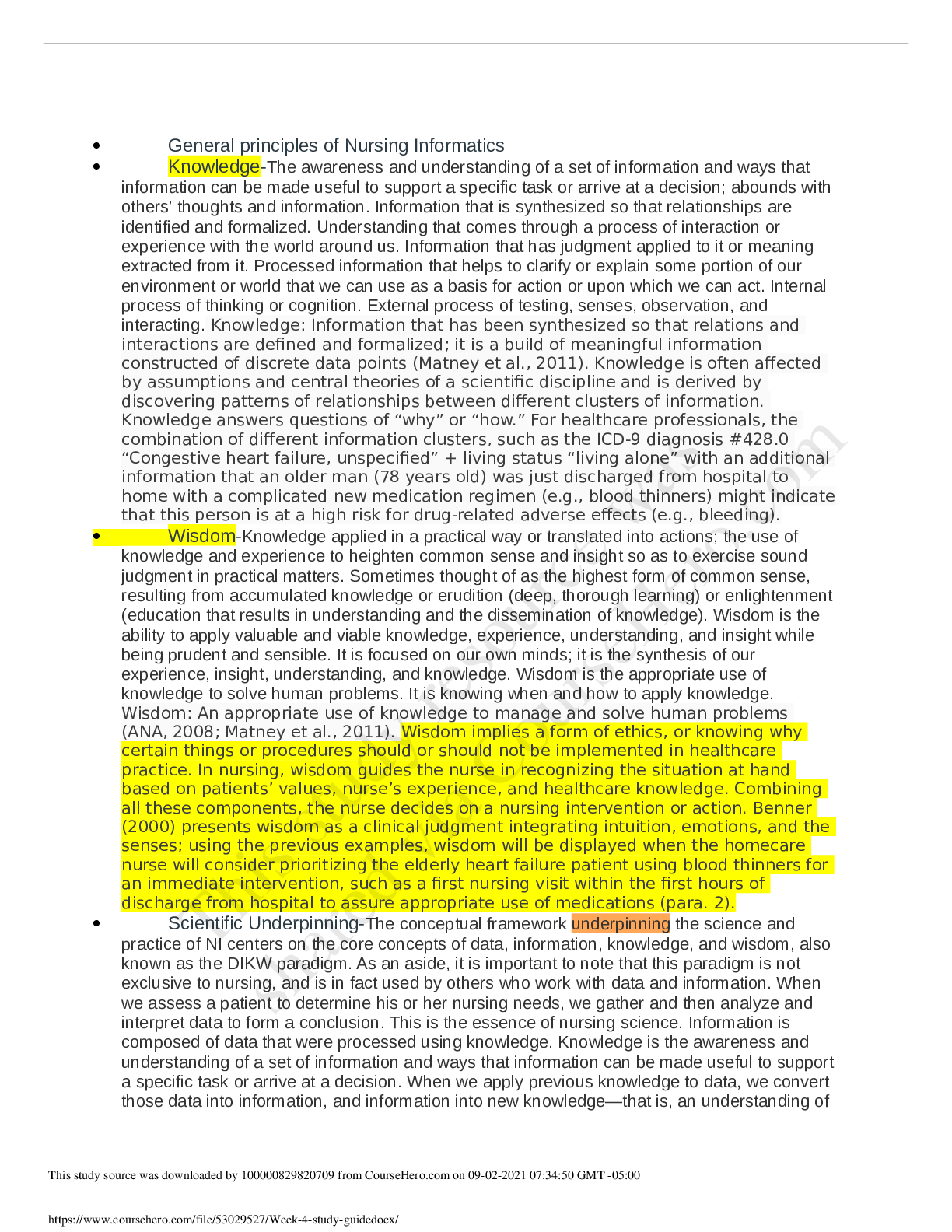
Buy this document to get the full access instantly
Instant Download Access after purchase
Add to cartInstant download
Reviews( 0 )
Document information
Connected school, study & course
About the document
Uploaded On
Apr 16, 2021
Number of pages
7
Written in
Additional information
This document has been written for:
Uploaded
Apr 16, 2021
Downloads
0
Views
28

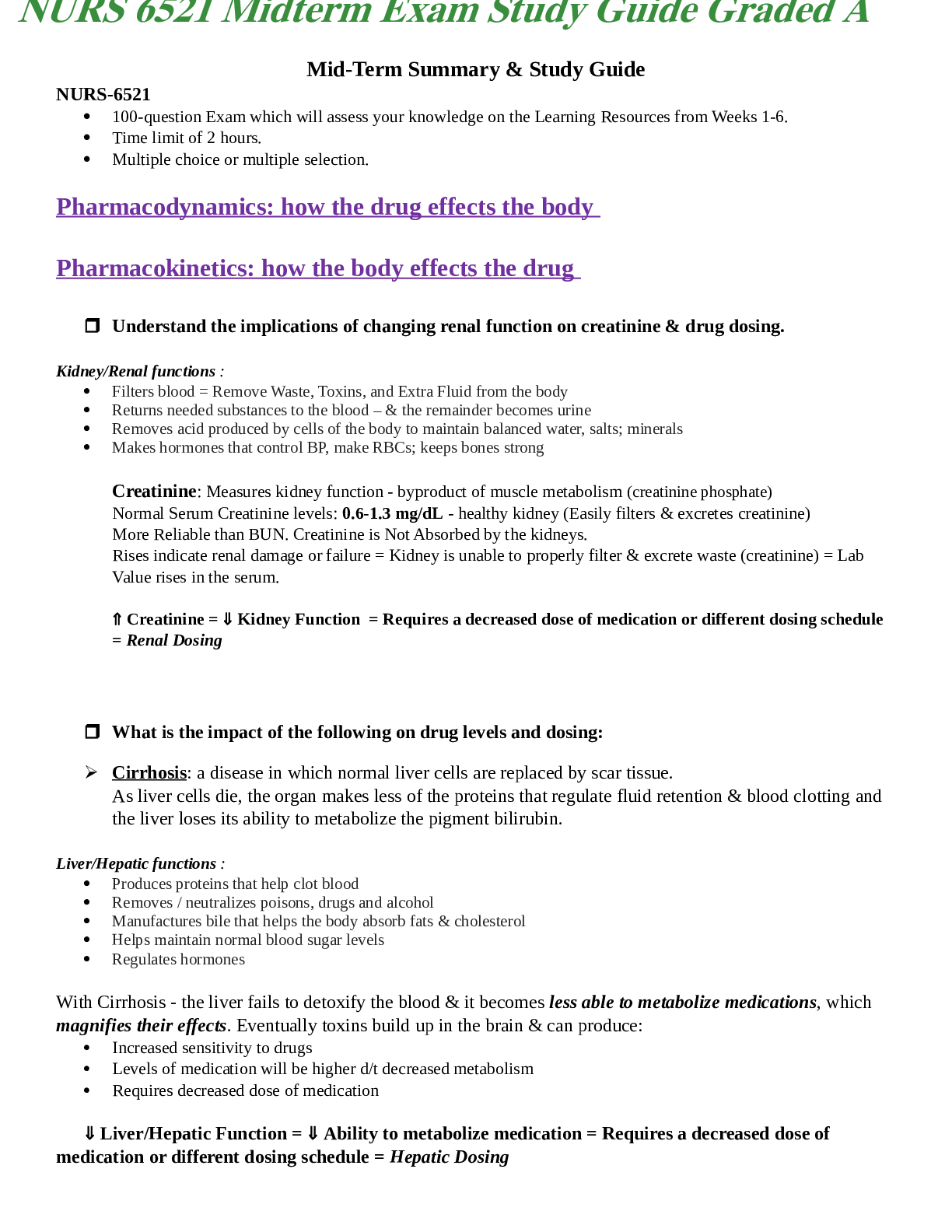
.png)

.png)
